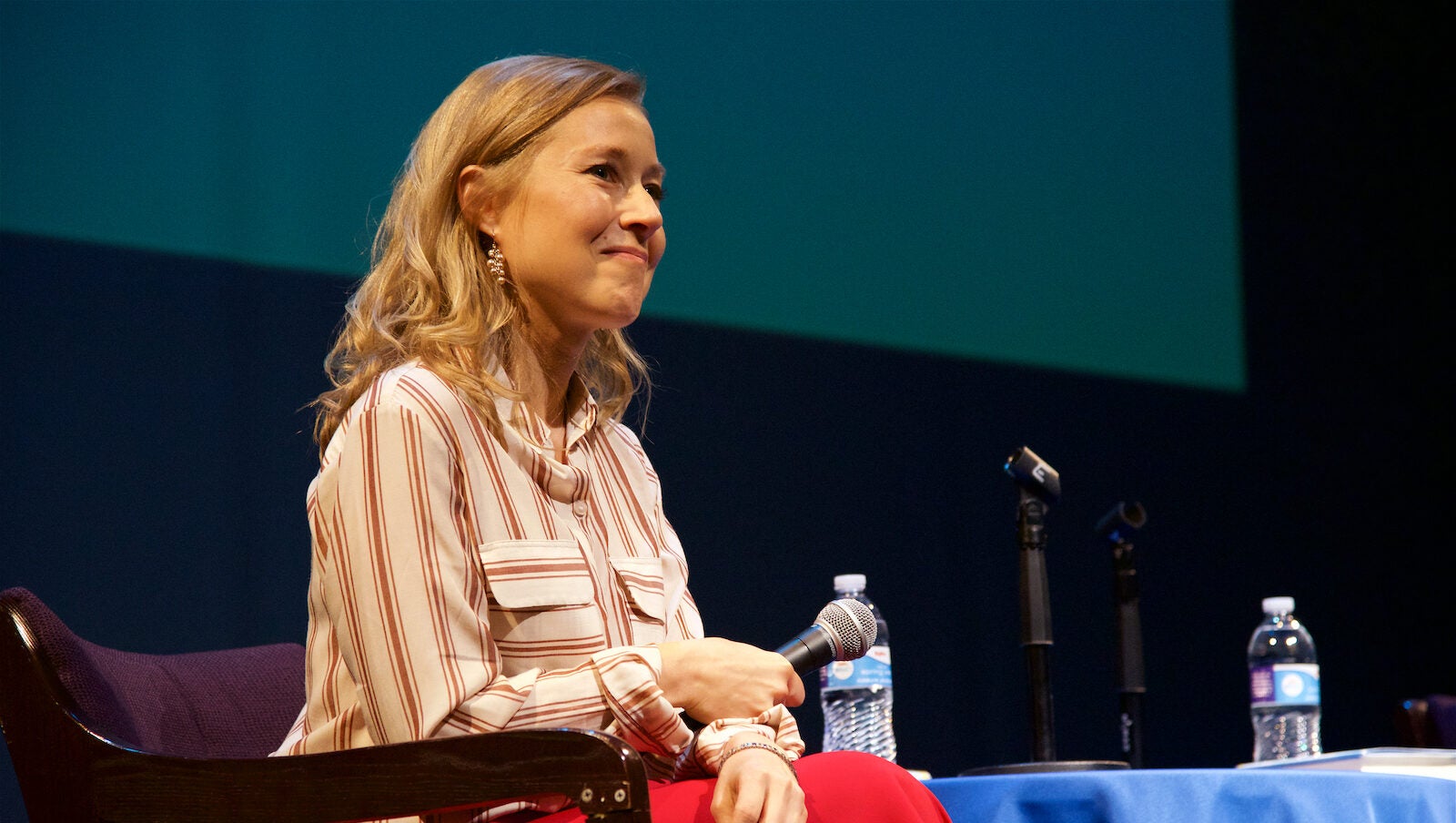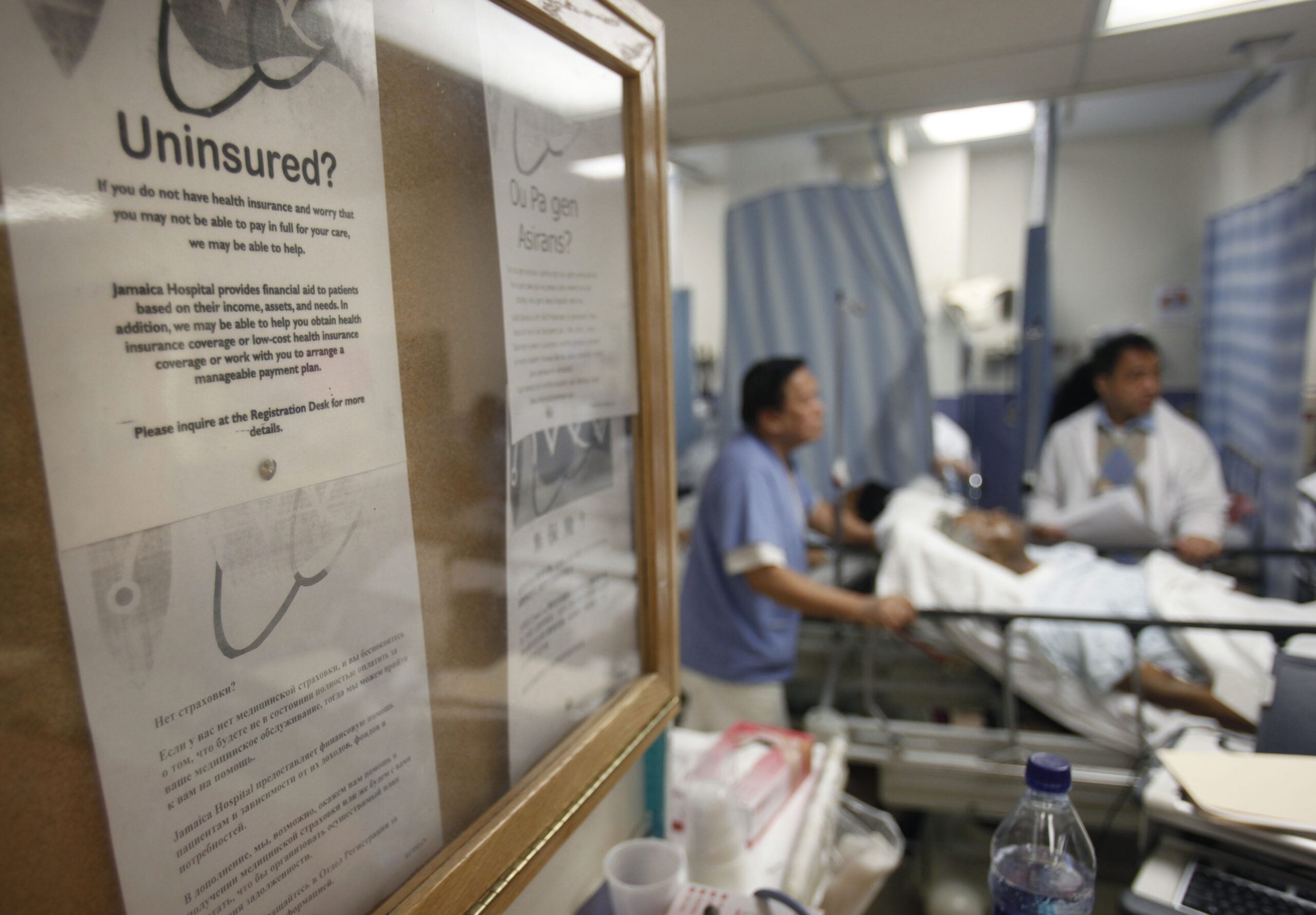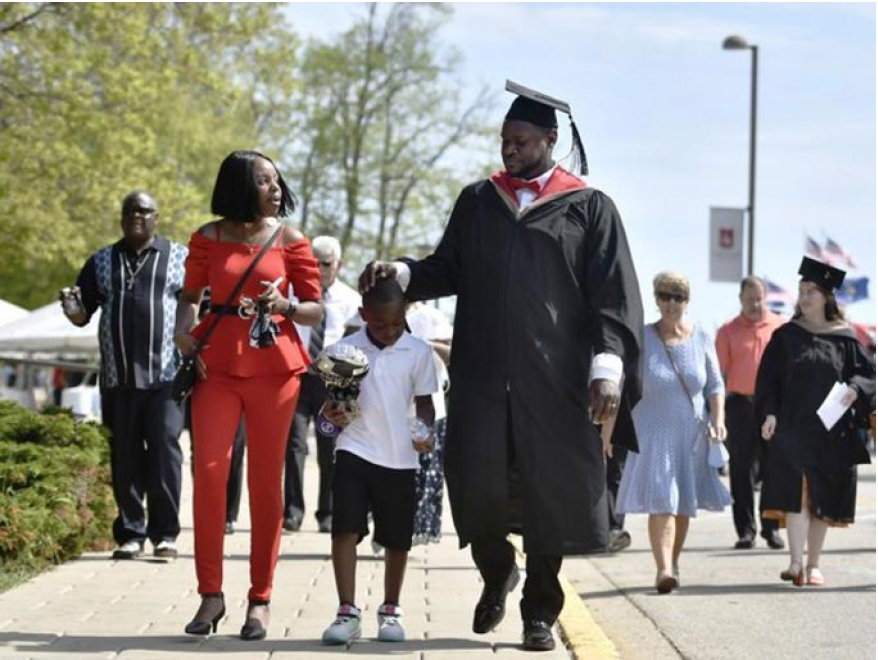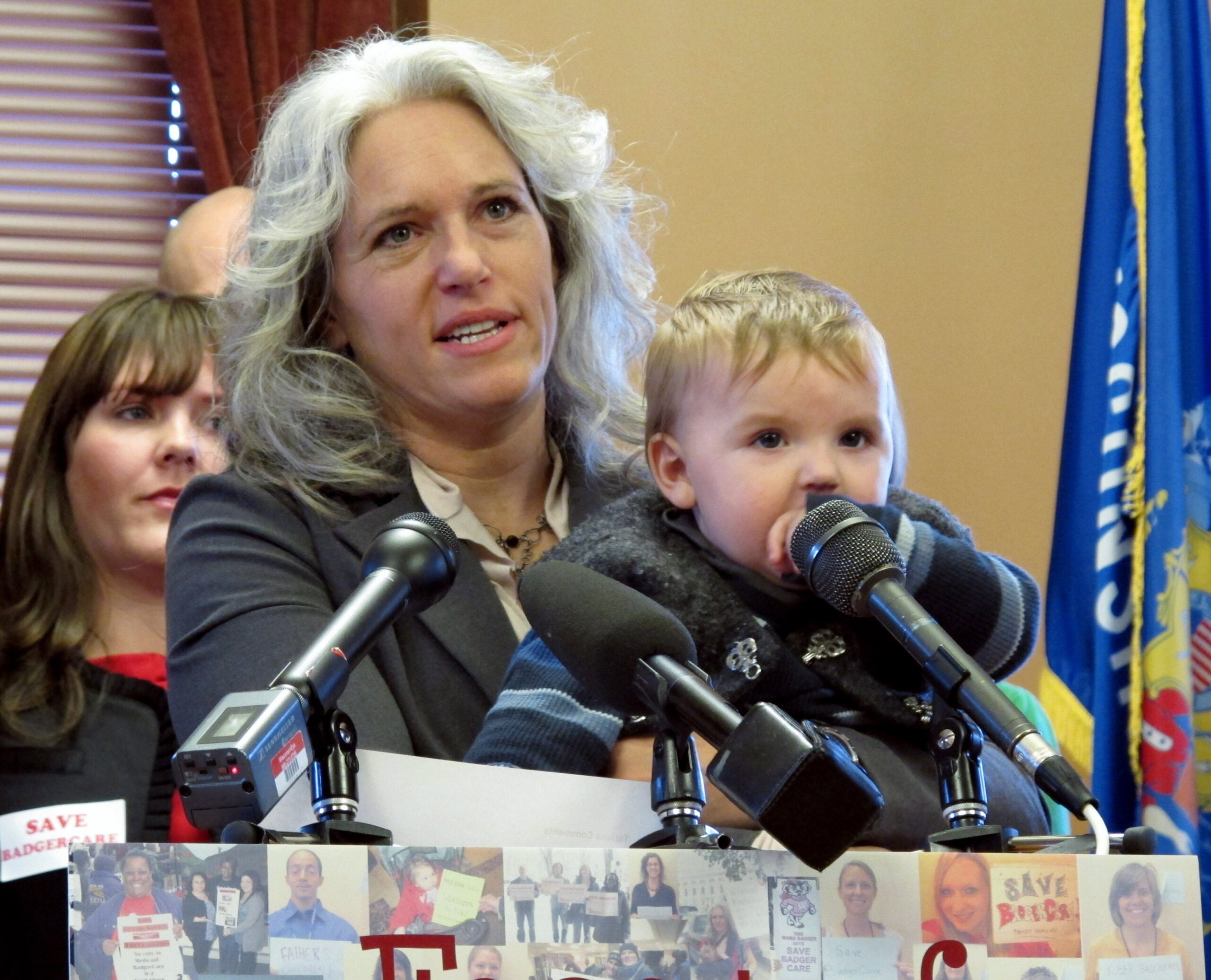Journalist and author Sarah Smarsh wants readers to rethink stereotypes associated with the working class.
“Rural America isn’t just white, it isn’t just male and it isn’t just folks wearing hard hats,” Smarsh said in a recent interview with WPR’s “Wisconsin Today.” “I know that’s true in Wisconsin. It’s certainly true in my state of Kansas, with a robust immigrant population largely operating our meat packing industry.”
As an upcoming guest of the University of Wisconsin-Madison’s Morrill Lecture Series, Smarsh will talk about how class and rural issues intersect with the upcoming presidential election.
News with a little more humanity
WPR’s “Wisconsin Today” newsletter keeps you connected to the state you love without feeling overwhelmed. No paywall. No agenda. No corporate filter.
“Political binaries and frameworks are reductive and even dangerous in the way that we talk about the American electorate, not to mention our own hearts and minds as human beings who are processing all of this,” she said.
On “Wisconsin Today,” Smarsh also discussed how the media industry can be more inclusive of class differences — both within and outside of the newsroom.
The following was edited for clarity and brevity.
Rob Ferrett: Much of your writing encourages a perspective shift about rural Americans. Why is this important for you to talk about?
Sarah Smarsh: I grew up in a rural small town in Kansas on a fifth-generation wheat farm. It felt like an apolitical existence. My people largely didn’t vote. We were working in fields just trying to survive while other people were discussing politics and reading headlines. Nonetheless, I absorbed a vague moderate conservatism.
As a first-generation college student on the University of Kansas campus, my information sources expanded. Then my ideas shifted. If someone had written me off, labeled me a villain and not engaged with me in important, formative conversations, that would have been damaging to my developing ideas and ideologies.
Some ideas are superior to others. I would caution all of us: If we are fortunate to have found our way to what are indeed superior ideas, perhaps it’s not because we ourselves are superior, but because our life experience and exposure to ideas have allowed us to find a better ideology.
RF: You often include your own experiences in your writing, which is uncommon for journalists. Why is that important in your work?
SS: I started out as a kind of traditional, just-stick-to-the-facts reporter. At some point, I started writing essays that were still addressing public issues, but using my life and my family as a springboard to get at those ideas in more intimate ways.
I made that move because in every newsroom I worked in, I found I was the only person who had direct experience of either rural life or poverty. I felt a sort of responsibility to say, “Hey, these stories are being missed and I’m going to show you in the most personal and intimate way.”
Those essays went viral. I found that people are longing for deep personal connection. It helps people find not just the data and the facts of a story, but the meaning of what’s going on in this country.
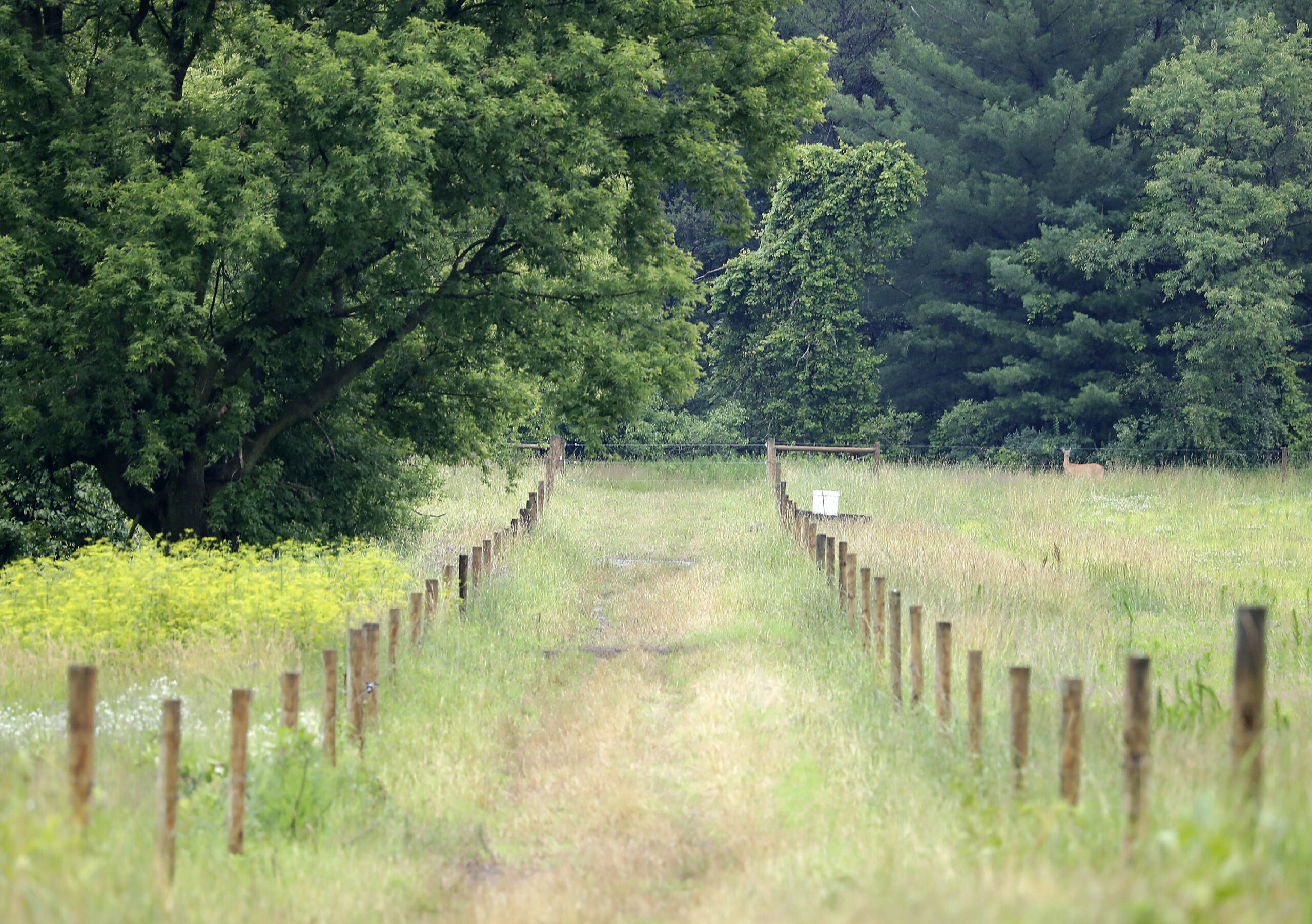
RF: A lot of the inroads to the media industry involve maybe an unpaid internship that isn’t realistic for someone who doesn’t come in with some family money behind them. How can we get more people from a working class, rural background into the media profession?
SS: I did take that unpaid internship, by working other jobs and running myself ragged. It is an inhospitable, traditional track into the profession. How do we address that? One: Make the economics of the early career less class-privileged. That means making the unpaid internship paid.
It could also mean opening the pipeline up to folks who come from a less formally educated background. I don’t want to diminish professional training by any stretch of the imagination. That’s been key to my toolkit as a reporter and writer. But I think that there are a number of brilliant young people who could contribute a lot to our field and our industry without four-year degrees.
This might be the most foundational: Always include the notion of class when talking about diversity. We must address race, gender and sexual orientation, but often class and even geographic region gets left out of those definitions. We have to at least acknowledge that aspect of identity in those conversations.
RF: Do you address a lack of access to health care when talking to people living in rural areas?
SS: It’s top of mind in those communities. All of these losses for our community change the day to day experience of a place. (It changes) outcomes and ability to get health care in the case of an emergency, let alone education for your children or an easy enough trip to the grocery store for food. It also is a blow to the culture of a place. It’s like a loss of sense of self, and I do think that fragility and that vulnerability makes rural and small town America an unfortunate target for some negative political intentions.
The intersection of the political moment and the reality on the ground is, in its most optimistic and hopeful way, an opportunity for policy to humanely and practically address those places that are in need of help and are concurrent with that need. They often provide the resources, labor and food that gets piped into urban and suburban spaces.
I want to be clear that this isn’t a one-way stream of, “Let’s give our tax dollars to help these rural places that we might also be suspicious of and not agree with.” It’s actually the truth that we’re all interconnected in ways that are often missed in these political frameworks.
Wisconsin Public Radio, © Copyright 2025, Board of Regents of the University of Wisconsin System and Wisconsin Educational Communications Board.

